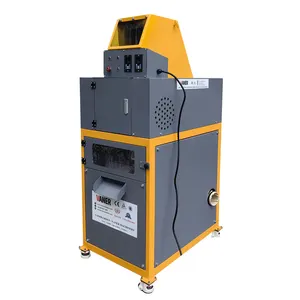Introduction to Buying Scrap Yards
Investing in scrap yards can be a lucrative venture for individuals and businesses looking to enter the recycling industry. Buying scrap yards not only provides opportunities for profit but also plays a vital role in environmental sustainability by recycling metals, plastics, and other materials. In this guide, we will explore the different types of scrap yards available, the features and functions that make them unique, practical applications, and advantages of investing in this field.
Types of Buying Scrap Yards
Scrap yards come in various forms, catering to those interested in specific materials or industries. Here are some prevalent types:
- Metal Scrap Yards: Specializing in non-ferrous and ferrous metals, these yards focus on collecting materials like copper, aluminum, and steel, which can be recycled and repurposed.
- Electronics Recycling Yards: These facilities deal with electronic waste, extracting valuable metals and components from obsolete devices while ensuring environmentally safe disposal.
- Automotive Scrap Yards: Focused on recycling parts from old vehicles, these yards offer a range of automotive components and materials that can be refurbished or recycled.
- Construction and Demolition Yards: These specialize in waste generated from construction sites, recycling concrete, wood, metal, and other debris into reusable materials.
Function and Features of Buying Scrap Yards
When buying scrap yards, understanding their functions and key features is essential. Each yard offers unique services that can enhance your investment experience:
- Material Sorting: Scrap yards utilize advanced sorting technologies to separate recyclable materials, improving efficiency and maximizing recycling rates.
- Weight and Measurement Equipment: Most scrap yards are equipped with scales and measurement tools to ensure accurate pricing based on material weight.
- Transportation Services: Many yards offer pick-up services for large quantities of scrap, saving buyers the hassle of transportation.
- Expert Consultation: Knowledgeable staff can provide insights on material value, trends in scrap prices, and tips for efficient recycling practices.
Applications and Advantages of Buying Scrap Yards
Investing in scrap yards unlocks numerous applications and advantages that can benefit both businesses and individuals:
- Economic Benefit: Buying scrap yards allows for cost savings, as recycled materials are often less expensive than new raw materials and can be sold for a profit.
- Environmental Impact: Engaging in recycling reduces landfill waste and promotes sustainable practices, contributing positively to environmental conservation.
- Job Creation: Scrap yards can stimulate local economies by creating jobs in waste management, transport, and recycling industries.
- Diverse Investment Opportunities: Whether focusing on metals, electronics, or construction materials, scrap yards provide opportunities across multiple sectors, making it a versatile investment.
How to Choose the Right Scrap Yard for Buying
Choosing the right scrap yard is crucial when considering investing in this industry. Here are some essential factors to consider:
- Reputation: Research yard reviews and testimonials to ensure they are reputable and follow legal recycling practices.
- Types of Materials Accepted: Select a yard that specializes in the materials you are interested in buying or selling.
- Location: Consider yards that are geographically convenient, as this will reduce transportation costs and time.
- Customer Service: Choose a scrap yard that provides excellent customer support, as this can facilitate a smoother buying and selling process.















































